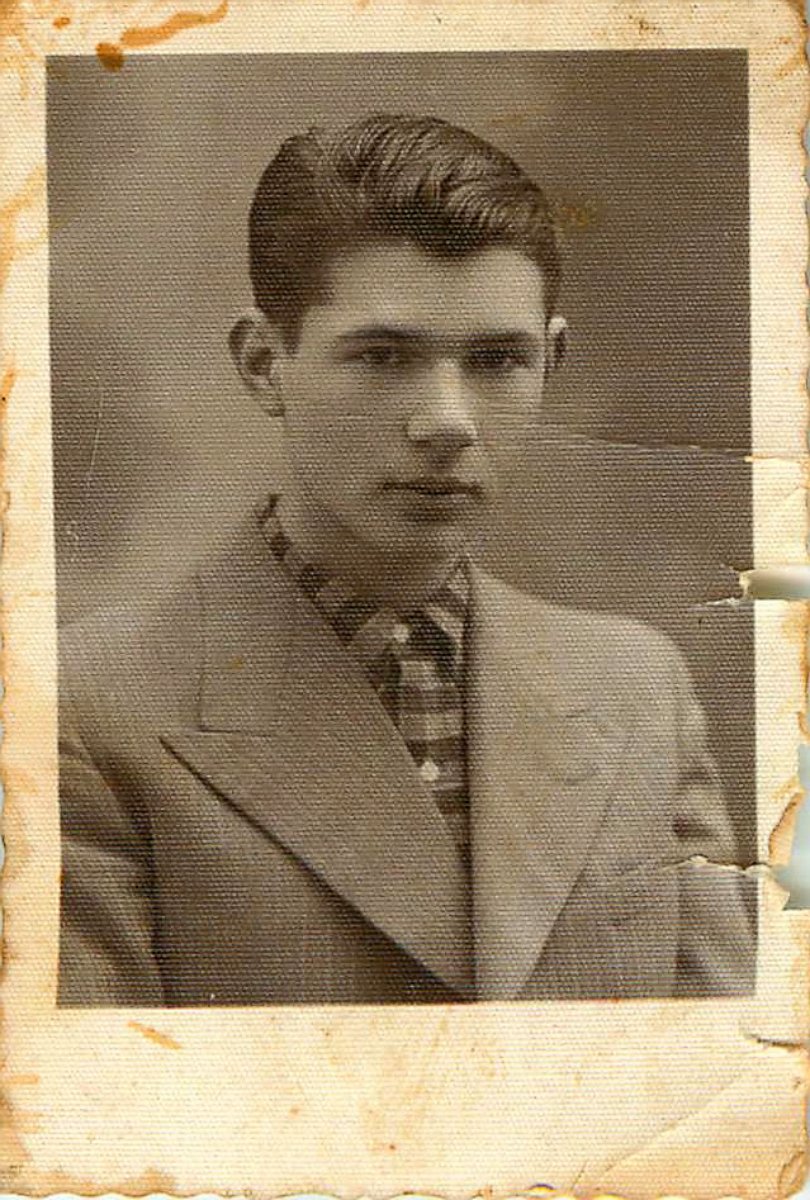From Holocaust Survivor to Houston Baker: The Incredible Story of Sigmund Jucker and Three Brothers Bakery
A story worth hearing, especially on Holocaust Remembrance Day.
— -- You often can’t tell the story of a place just by looking. Such is the case with Three Brothers Bakery in Houston, which seems like any other typical American family-run business. Except this particular bakery’s story starts all the way back in pre-World War II Poland with 8-year-old Sigmund Jucker.
Jucker began helping out at his Jewish family’s bakery as a young boy, making the rye bread, pumpernickel bread, whole wheat bread, cinnamon rolls, Danish pastries and more, all by hand.
“I was in the bakery every single day from 10 at night to 10 in the morning,” Jucker, now 93, told ABC News. By the time he was 13, Jucker finished school and worked in the bakery full-time through his teenage years.
That is, until 1939.
Click here for more photos of Sigmund Jucker and Three Brother Bakery’s story.
“When the war broke out, everything was gone to hell. We got nothing left and we started a new life under German occupation. It didn’t take long when they arrested my mother and my father and they sent us to a concentration camp,” he said. “And that’s when I started my life.”
Sigmund Jucker survived, though, and has now lived to tell the tale. But how he got from that concentration camp to running a successful Houston bakery is a history worth hearing, especially on today of all days: Yom HaShoah, or Holocaust Remembrance Day.
So, to honor the day and ensure we never forget, this is the important story of Sigmund Jucker, and how he managed to survive the Holocaust and make it all the way to Houston, Texas to leave a legacy that lives on every day.
“Whatever I went through, I never thought I would live to the next day,” Jucker said. “But I lived through and I thank God I lived through all what I’ve seen in my eyes.”

When German forces first occupied his neighborhood in 1939, Jucker and his brothers, Sol and Max, hid in the floor of the house for several months to avoid the routine capture of young Jewish men at the time. Finally, Jucker escaped to Russia where he first worked in a coal mine before getting sick and finding a job at a bakery. He lived in poverty and slept on the top of his employer’s oven.
“The job was hard work. I had to mix dough three times a day by hand, and every dough was 1,100 kilo,” he recounted.
Finally, Jucker’s mother sent a man to look for him to come back home, where the family had managed to so far stay.
“I was lucky to get away the same day,” Jucker said, because as he remembers it, the day he left was the same day Germans came into that city and rounded up the Jews for a mass killing.
After five or six weeks back at home and two years since Germans first occupied their town, the Jucker family’s time came for enslavement. Jucker, his two brothers and sister Jeannie were taken to hard labor camps, and his mother and father were sent to Auschwitz. Jucker bartered to get his siblings into better camps by gifting a tie clip to a German soldier.
From there, Jucker went to eight hard labor camps (Sosnowitz, one in the Polish mountains, Lipowa, Czestowa, Klobuck, Annaberg, Klagenfurt and Waldenburg) over the course of four and a half years performing various tasks such as taking apart houses, mixing cement by hand and cleaning the kitchens.
“It was everything that I used to make in the old country. Pure rye bread, pure pumpernickel, 20 kinds of rolls,” Jucker said. “I worked every single day, seven days a week.”
Under Bobby’s supervision, the bakery has expanded to three locations and has won numerous awards and accolades from local and national media and business councils for their food, but they’re still making product the same old way, with no preservatives and the foundation of the family’s traditional recipes. Most importantly to Bobby, though, they have paid homage to their family’s tough history. When Jim Crow laws mandated segregation in the South, Three Brothers Bakery refused to have separate areas, and the bakery has long been giving away food to the homeless.
Click here for more photos of Sigmund Jucker and Three Brother Bakery’s story.
“We give away probably 400 loaves of bread a week and I bet we give away 400 dozen rolls to homeless shelters,” Bobby said. “Bread is the lifeline for a lot of people. That was really important to my dad and his brothers, and it’s kind of a tradition that we keep going.”
Tradition is something very important to the bakery. This week, 10 percent of all rye bread sales in store and online will be donated to the Houston Holocaust Museum. In these ways, though Jucker has taken a step back from running the bakery, his presence is still very much felt, and he still visits every Monday for lunch.
“It is my pleasure in my life to see the bakery is running like I would be there because my son takes care of it,” Jucker said.